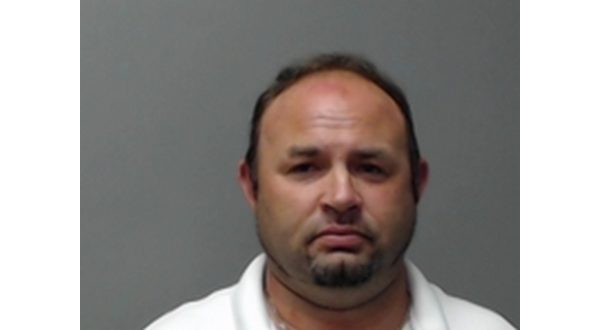
Jerrell Ray Hightower
A 40-year-old Franklin man who operated the Sears Hometown Store franchise in Mountain Home has been arrested on theft charges, approximately six weeks after seeing previous charges dropped by the state.
Jerrell Ray “J.R.” Hightower was booked into the Baxter County Detention Center Thursday on a felony theft of property charge and a misdemeanor of falsifying business records. He was released on a $5,000 bond.
According to the probable cause affidavit from the Mountain Home Police Department, a local business conducted an inventory check in early March and discovered a Craftsman lawnmower valued at $2,899 was missing. In early July, a customer contacted the business for service on a mower, which the business identified as the missing mower.
The customer provided a handwritten receipt and a credit card receipt allegedly showing Hightower sold the customer the mower for $2,000 through a service account that would bypass the business.
Hightower was originally arrested in May and charged with stealing more than $21,000 from the Sears Hometown Store corporation that owns the merchandise stocked in the store.
Information on the Sears Hometown Store website explains that an “owner” such as Hightower pays for store upkeep and a number of other costs, including utilities and staff salaries. The merchandise in the stores belongs to the corporate entity and store “owners” are paid a commission when a sale is made.
When transactions were done properly, they would be entered in the “corporate cash register” and the receipts kept in a “holding account” until they could be transferred to Sears.
A sale would set off a chain of events – the merchandise would be automatically removed from inventory, an alert provided to corporate that the item had been sold, and a printed receipt would be produced for the purchaser.
According to the probable cause affidavit in the previous case, Hightower was alleged to have failed to enter sales into the corporate cash register and diverted the money that should have gone to Sears into his personal accounts.
Auditors alleged that the $21,000 in merchandise was not in inventory, but there was no paperwork to show it had been sold.
During the investigation, missing items of merchandise were traced back to purchasers.
The purchasers had handwritten receipts or canceled checks to show they had paid for their items.
They told investigators they were told such unusual payment verification methods were being used because the store’s computer system was not operating.
Some customers were told they had no need for a receipt from the store since their canceled checks would show they had paid for the merchandise.
The charges were dropped in June when a settlement was reached in the case in which the money alleged to have been stolen was repaid in full to the victim corporation.
WebReadyTM Powered by WireReady® NSI










